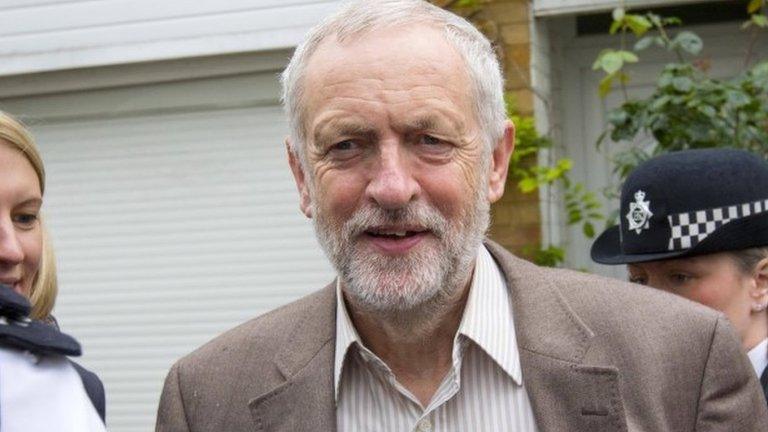Labour reshuffle: Diane Abbott made shadow home secretary
- Published
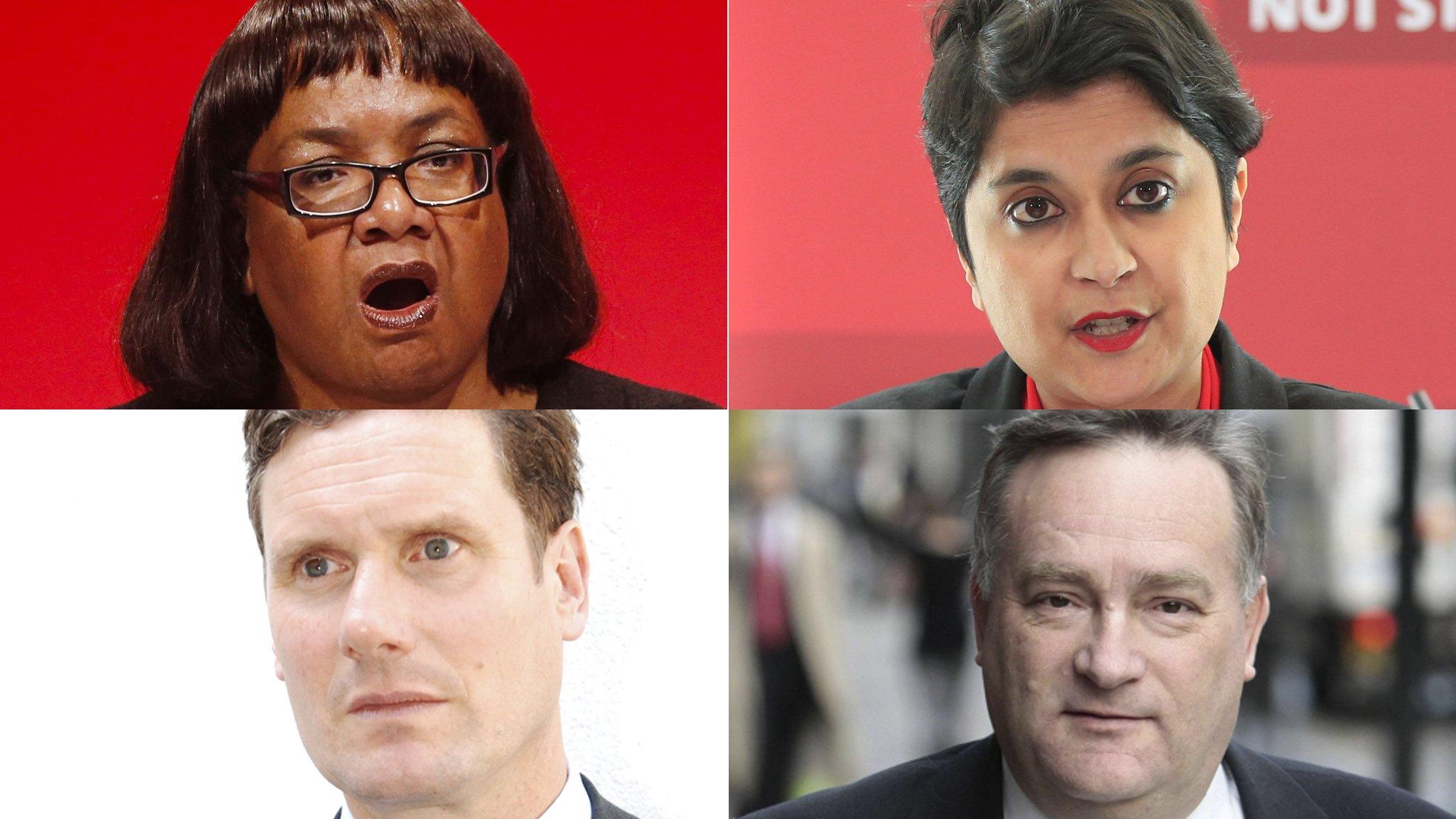
The appointments of Diane Abbott, Shami Chakrabarti, Nick Brown and Keir Starmer were announced on Thursday
Diane Abbott has been promoted to shadow home secretary in Labour leader Jeremy Corbyn's front bench reshuffle.
Ex-Liberty director Shami Chakrabarti is shadow attorney general and Keir Starmer, who left the team in June amid a wave of resignations, returns as shadow Brexit secretary.
But Dame Rosie Winterton, who had tried to negotiate between Mr Corbyn and many of his MPs, is out as chief whip.
Mr Corbyn's critics have suggested the reshuffle will fail to unify the party.
One senior figure said the reshuffle so far looked "vengeful and cack-handed", and Middlesbrough South MP Tom Blenkinsop accused Mr Corbyn, external of "seeking submission not unity".
Another MP, Neil Coyle, told BBC Radio 5 live that Dame Rosie's work during a difficult period for Labour had been "underestimated".
He said that, despite everything, "the parliamentary votes have been fairly coherent and that's a direct result of someone who is a unifying figure - and that's Rosie as chief whip."
It is understood that some Labour MPs who were thinking about returning to the front bench are now reconsidering.
'Opportunities to unite'
But Mr Corbyn's team denied the reshuffle was divisive, saying other MPs who resigned will be returning to shadow cabinet roles later.
A Labour spokesman said: "Jeremy has today spoken to a number of colleagues in the Parliamentary Labour Party and will continue to do so throughout the day. He has begun the process of appointing a new frontbench team."
Jo Stevens, who has been brought in as the new shadow Welsh secretary, told BBC Radio 4's Today programme that she thought Mr Corbyn had reached out to unify the party.
"I was one of the senior people in Owen Smith's leadership campaign and he's offered me a place on the shadow cabinet," she said.
"The Labour Party is a collective and we're there to hold the government to account," she added. "That's why I stayed in my post in the summer and accepted the job yesterday."
Ms Stevens said there would be opportunities on "plenty of issues" to unite the party against the Tories.
'Full circle'
Mr Corbyn had promised to unite his party following his re-election as leader last month.
Some posts have been vacant since the resignations in the aftermath of June's EU referendum in protest at his leadership.
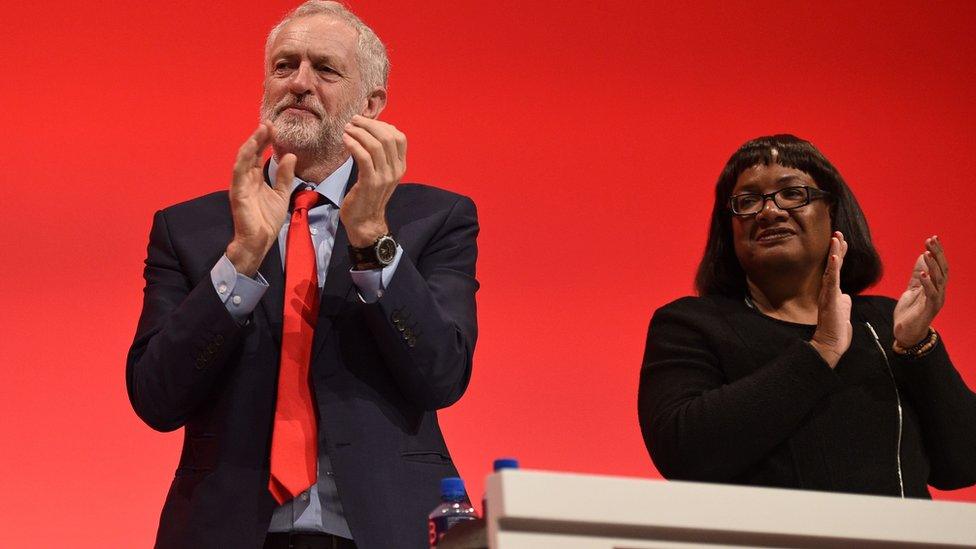
Mr Corbyn was re-elected Labour leader last month
Former Director of Public Prosecutions Mr Starmer stood down from his shadow Home Office minister post in June. He will now join shadow foreign secretary Emily Thornberry, shadow international trade secretary Barry Gardiner, new shadow economic secretary Jonathan Reynolds and shadow chancellor John McDonnell on Labour's "shadow Brexit team".
As well as moving Ms Abbott from shadow health secretary and Ms Stevens, Sarah Champion has been made shadow women and equalities minister.
Announcing the changes to his top team, Mr Corbyn leader said in a statement: "I am delighted to confirm the appointments of four extremely talented women to our shadow cabinet.
"These appointments mean, for the first time ever, two out of the three traditional 'great offices of state' will be shadowed by women."
He added that his front bench would include 10 Labour MPs from the north of England and five black or ethnic minority MPs.
Ms Abbott said of her new role: "I am honoured to serve. My first job when I left university was as a graduate trainee in the Home Office, so my career has come full circle."
The position was vacated by Andy Burnham who quit to run in the Greater Manchester mayoral election.

Analysis

Front bench roles: Clive Lewis, Jo Stevens and Sarah Champion
By Iain Watson, political correspondent
Jeremy Corbyn's reshuffle sees big promotions for two women seen as his allies - Diane Abbott and Shami Chakrabarti, a year after he was criticised for not putting women in top shadow cabinet roles.
But the real significance is not who is in - it is who is out. The very popular chief whip, Rosie Winterton, has been sacked. She was seen as someone, behind the scenes, who stood up for MPs' interests against the party leader- and who had been working hard to broker a compromise on shadow cabinet elections.
She believed that many more MPs might return to the frontbench if they were answerable to colleagues and not just to the leader. So many Labour MPs tonight are expressing disappointment that she has gone.
And it is interesting that Clive Lewis, the shadow defence secretary who, unlike Jeremy Corbyn, saw no pressing need to challenge Trident renewal, has been shifted to become shadow business secretary.
One senior party figure has called the reshuffle "cack handed and vindictive". Unity has not yet broken out in the Labour Party.

Conservative MP Luke Hall said Ms Abbott's appointment showed Labour had "lost touch with ordinary working-class people". He said: "By appointing a shadow home secretary who disagrees with the public, and her own party, about the need to control our own borders, Labour have abandoned the centre ground."
Baroness Chakrabarti, who was recently made a Labour peer, joins the shadow cabinet for the first time.
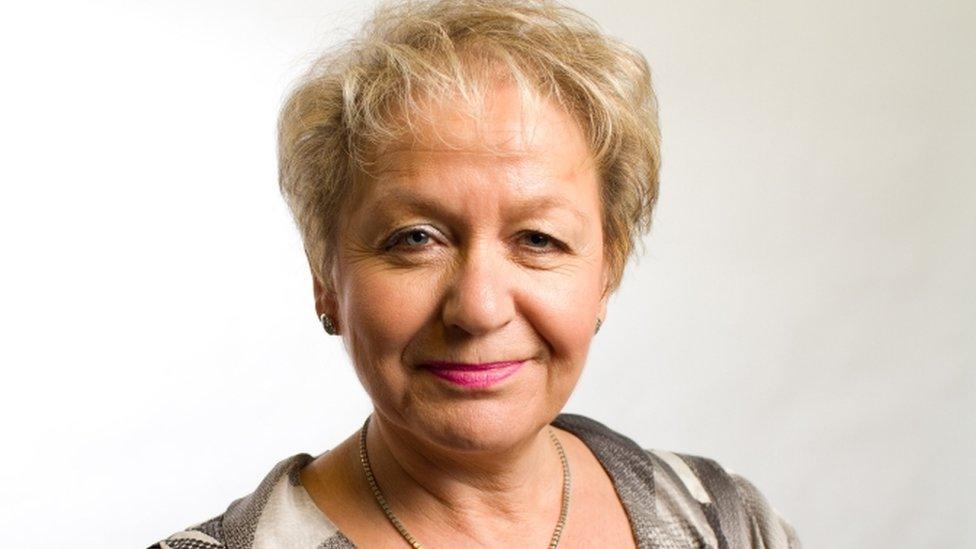
Dame Rosie Winterton wished her successor "every success" in his new role
Accepting the shadow cabinet role, she said it was "an enormous privilege", and added: "I hope to follow in a great tradition of law officers on both sides of the aisle who have defended rights, freedoms and the rule of law."
Mr Corbyn has also created a new position, shadow minister for black and minority ethnic communities, and appointed Dawn Butler to the role.
New opposition chief whip Nick Brown, who served in the same role under both Tony Blair and Gordon Brown, said he hoped to "bring experience" and "play a constructive role" in providing the "strongest possible opposition" to the Conservative government.
Dame Rosie, who was opposition chief whip since 2010, said it had been an "honour" to do the job and thanked the whips and the Parliamentary Labour Party for their support.
'Deeply saddened'
Mr Corbyn paid tribute to her "six years' exceptional service" and said she had played "an outstanding role in her support for me as leader and for the Labour Party as a whole".
But the Opposition Whips' office are said to be "deeply saddened" by her departure.
BBC political correspondent Iain Watson said he understood Dame Rosie did not leave her job voluntarily, and that there was "some significance" to her removal.
She had been trying to get a deal agreed on shadow cabinet elections and was seen as a "bulwark against attempts to deselect MPs that disagreed with Mr Corbyn".
Several prominent Labour figures took to Twitter to thank Dame Rosie for her work, including former leader Ed Miliband and former deputy leader Harriet Harman.
A number of MPs unhappy with Mr Corbyn's leadership have said they could not serve in his shadow cabinet, including his former challenger Owen Smith.
Others are said to be considering serving under the leader if he reinstates elections to the shadow cabinet, which were axed by former leader Ed Miliband in 2011.
A spokesman for Mr Corbyn has told the BBC that there will be no shadow cabinet elections before November.
- Published5 October 2016
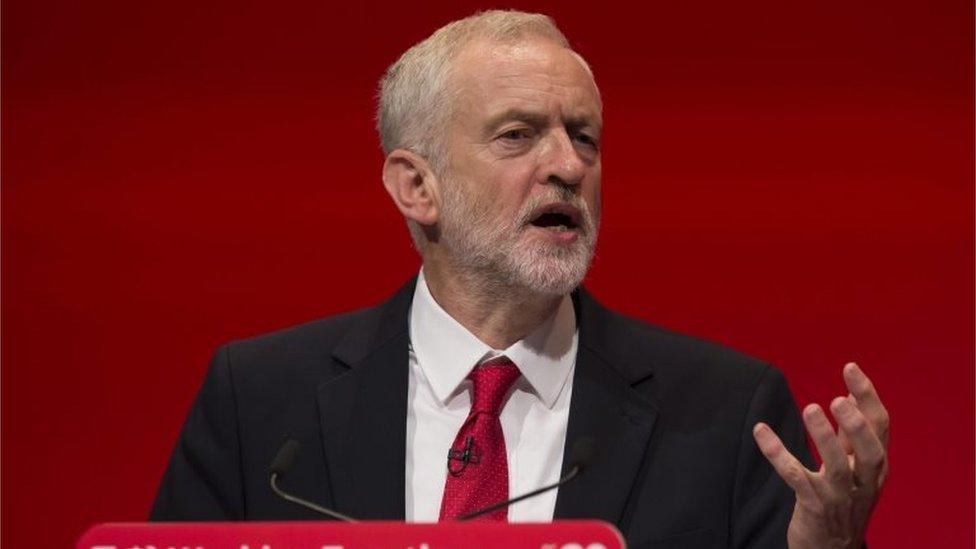
- Published28 September 2016
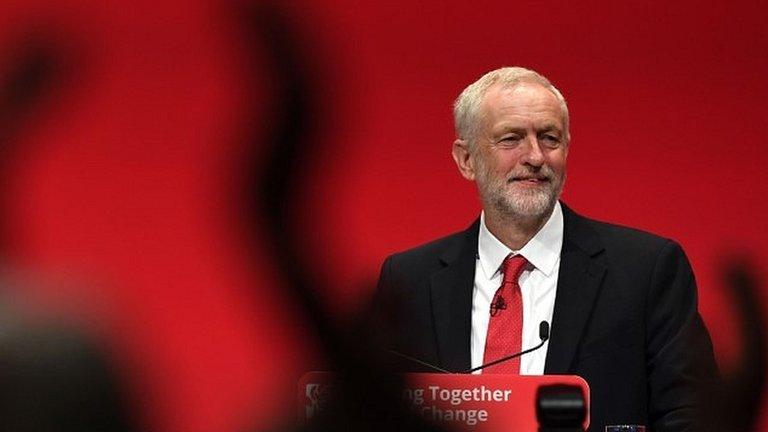
- Published25 September 2016
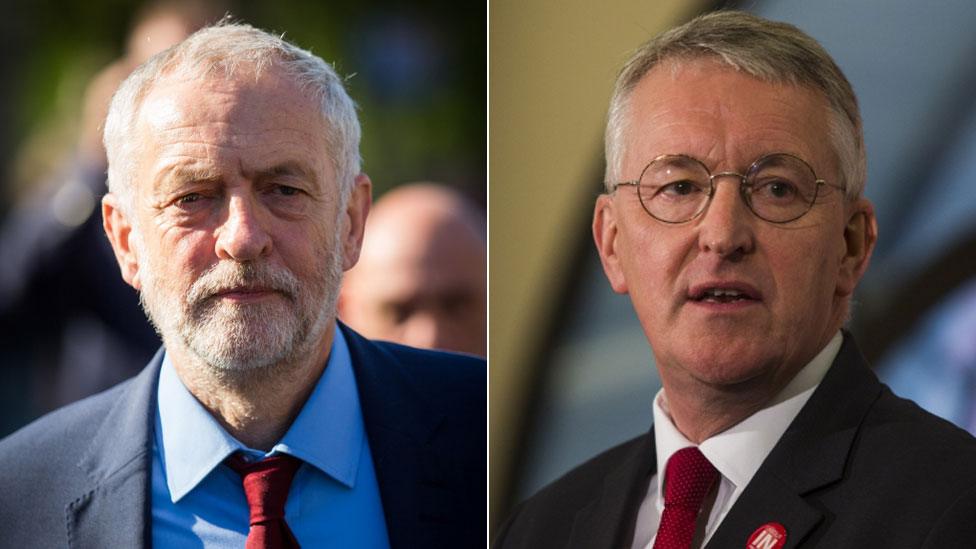
- Published24 September 2016
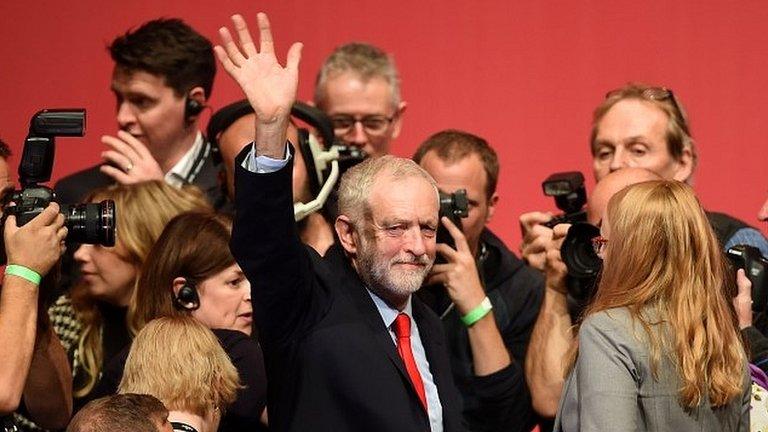
- Published2 September 2016
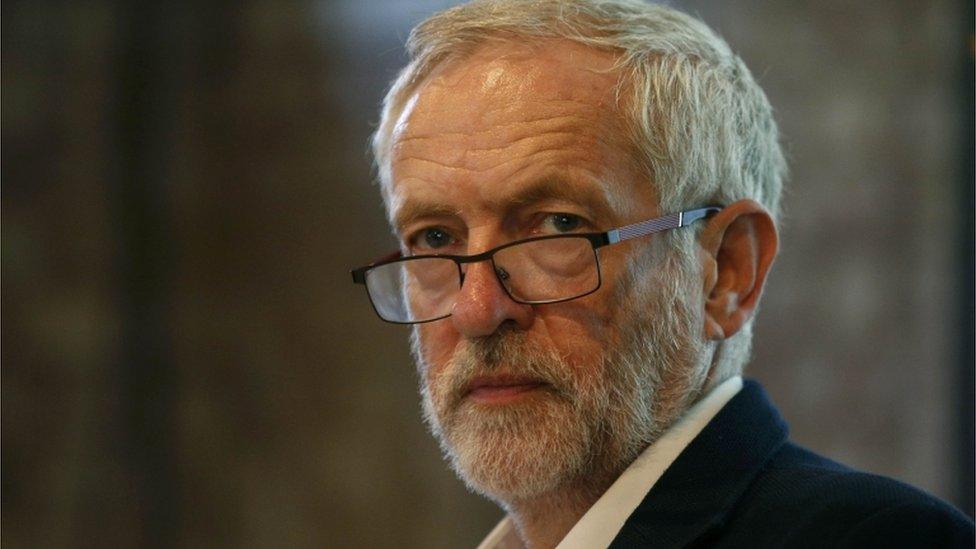
- Published27 June 2016
